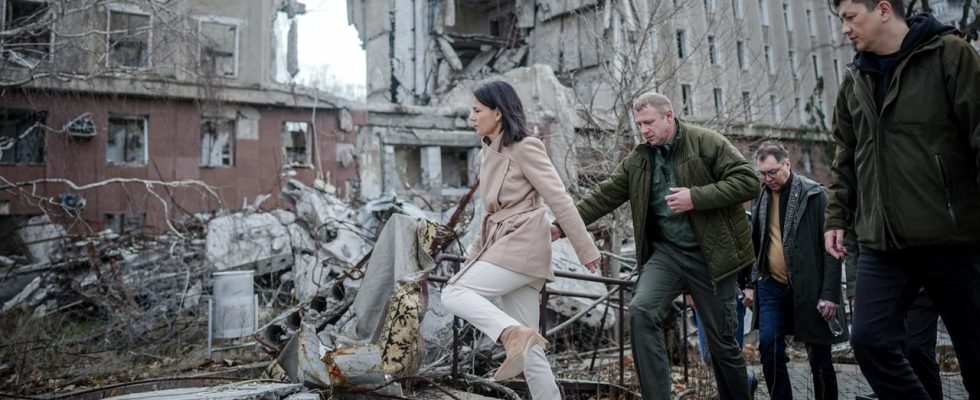Germany is helping Ukraine militarily like no other country. What is often overlooked in the discussion about “Taurus” and the like is that Germany also provides civilian aid.
In Lviv, German aid has a direct impact – namely in the care of the wounded. “Every week the trains from the east come with injured people,” says Anton Kolomieitsev, chief urban planner for the western Ukrainian city.
When the hospital’s capacity was no longer sufficient, German money was used to finance another building. Among other things, twelve million euros came from the Federal Development Ministry. Now people there can be provided with prostheses and supported in coping with trauma.
According to the Kiel Institute for the World Economy, no country has promised more humanitarian aid to Ukraine than Germany. According to the institute’s calculations, it is almost three billion euros.
They are in the shadow of the 17.7 billion euros for military aid. But Federal Development Minister Svenja Schulze believes that civil aid is particularly important, as the SPD politician says ARD capital studio said. In order to win a war, you not only need weapons, “but also a population that can take part, that has enough strength to do so.”
To this end, Germany is supporting Ukraine, for example, in rebuilding the health system and schools. The federal government also provides loans for companies that want to invest in Ukraine and supports the reconstruction of power lines and water supplies.
Civil reconstruction as the “heart”
Foreign Minister Annalena Baerbock personally saw what this looked like. At the end of February, the Green Party politician traveled to the southern Ukrainian city of Mykolaiv, where Russian bombs had destroyed the waterworks. With funding from the federal government, among other things, a German startup built a desalination plant and thus supplied the population with drinking water again.
During the trip, Baerbock described civil reconstruction as the “heart” of international aid. According to Baerbock, reconstruction is not in vain even if the war brings new destruction. Not only air defense systems, but also the construction of schools, hospitals and water supplies “save human lives every day.”
Costs estimated at almost 500 billion euros
In some cases this reconstruction has already begun. For the most part, however, it is a task for the future. However, you have to start planning now and “don’t just think about it when the war situation is over,” said Federal Construction Minister Klara Geywitz ARD capital studio. According to the SPD politician, planning cities and actually building them can take five to 20 years. And the damage in Ukraine is enormous.
The Kyiv School of Economics has documented more than 250,000 destroyed buildings. According to calculations by the World Bank, the United Nations and the Ukrainian government, reconstruction will cost at least 453 billion euros. This includes damage from the start of the war in February 2022 to the end of last year.
In order to support Ukraine in this challenge, the Federal Government is organizing a reconstruction conference in Berlin together with Ukraine in June. Numerous German city planners are already being networked with Ukrainian municipalities, says Construction Minister Geywitz. This is based on experience from other reconstruction processes: “There is no one master plan that can then be implemented in all cities.” Instead, individual plans are needed for each individual city.
Economic Advantages for Germany
In the end, according to Development Minister Schulze, it is not only Ukraine that benefits from German support. Germany also derives economic benefits from it. Because Ukraine is a future member of the European Union.
“Ukraine is a very interesting market,” says Schulze. “If we are the ones building partnerships now, it will benefit us in the future.” After all, every second euro in Germany is earned through exports.
According to the federal government, Germany has already provided Ukraine with more than 32 billion euros. In addition to civil and military support, financial aid is also included. This also includes payments to the more than one million Ukrainian refugees in Germany.

